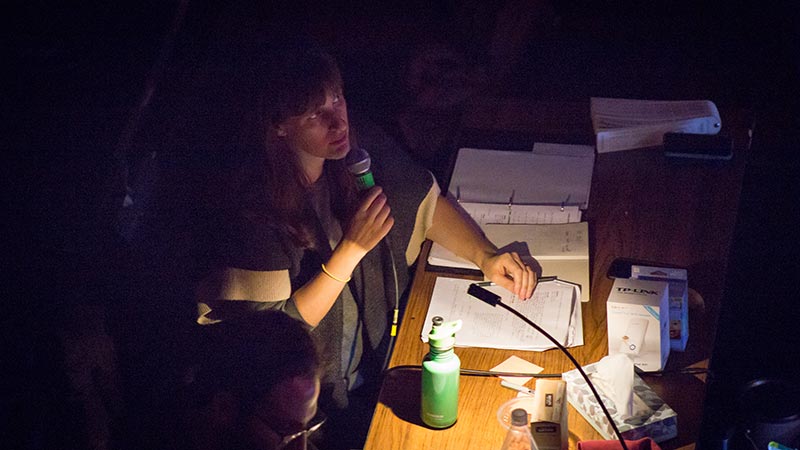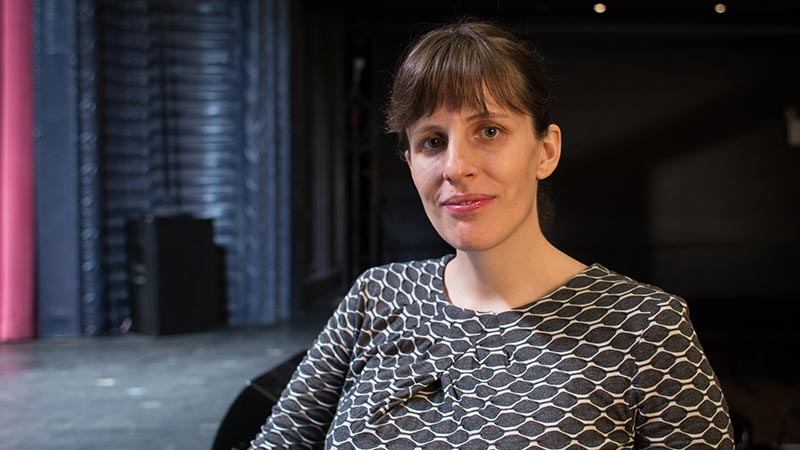As an immigrant from the United Kingdom, Sarah Benson understands cultural dislocation: “There wasn’t a language barrier,” she says, “but there was a completely different set of cultural assumptions. As a foreigner, you’re immediately put into the situation of not understanding exactly what’s going on, and having to look harder and listen harder.”
Since coming to the U.S. in 2002, however, the Creative Promise Prizewinner has found that she rather likes this sense of dislocation. It has been a useful instinct in her work as a stage director and artistic director of New York’s Soho Repertory Theatre, where she has become known for an oeuvre of works that often challenge our cultural assumptions. “Something I’m always interested in is how to encourage an audience to see something with fresh eyes,” she says.

To do that, Sarah starts by selecting material that she, herself, doesn’t quite yet understand. “Things that I find baffling, embarrassing, bizarre, or frightening are often the most valuable,” she says. Then, she starts an exhaustive research process that has, in the past, incorporated everything from visits to a Staten Island landfill to repeated readings of T.S. Eliot’s The Wasteland.
The next step in her process is design. Sarah appreciates that theatre in America is more visual than literary, as in her native country, and she starts a “hyper-collaborative” process with set, light, and costume designers, which allows her to figure out the “abstract metaphors of the piece, but also the real nuts and bolts of it,” she says.
Such design decisions have played key roles in both aiding and complicating an audience’s understanding of a play. Last year, Sarah directed a staging of An Octoroon, Branden Jacobs-Jenkins’s rewriting of a 19th-century melodrama about a woman who discovers that she is one-eighth black, and therefore in danger of being sold into slavery.

To theatricize one of the play’s central questions, Sarah collaborated with Branden and designer Mimi Lien on the play’s set. The play’s prologue was performed in front of a false back wall of a theatre; upon the prologue’s conclusion, the entire wall fell forward towards the audience, revealing a 19th—century plantation scene. “What [we] were trying to create in the design was a real sense of disruption in space,” she says. “We were asking people to question what they were looking at and to question what they trust.”
Sarah believes that theatre offers an unparalleled platform for exploring feelings that can be difficult to address in other forums, whether joyful or painful. “I’m always interested in the civic nature of theatre, the fact that you have live bodies gathering in a real space with real actors,” she says. “In a theater, you’re sitting next to a bunch of strangers, for the most part, and so it’s a great forum to be thinking about how you treat other people and how you think about yourself in a relationship to a community.”